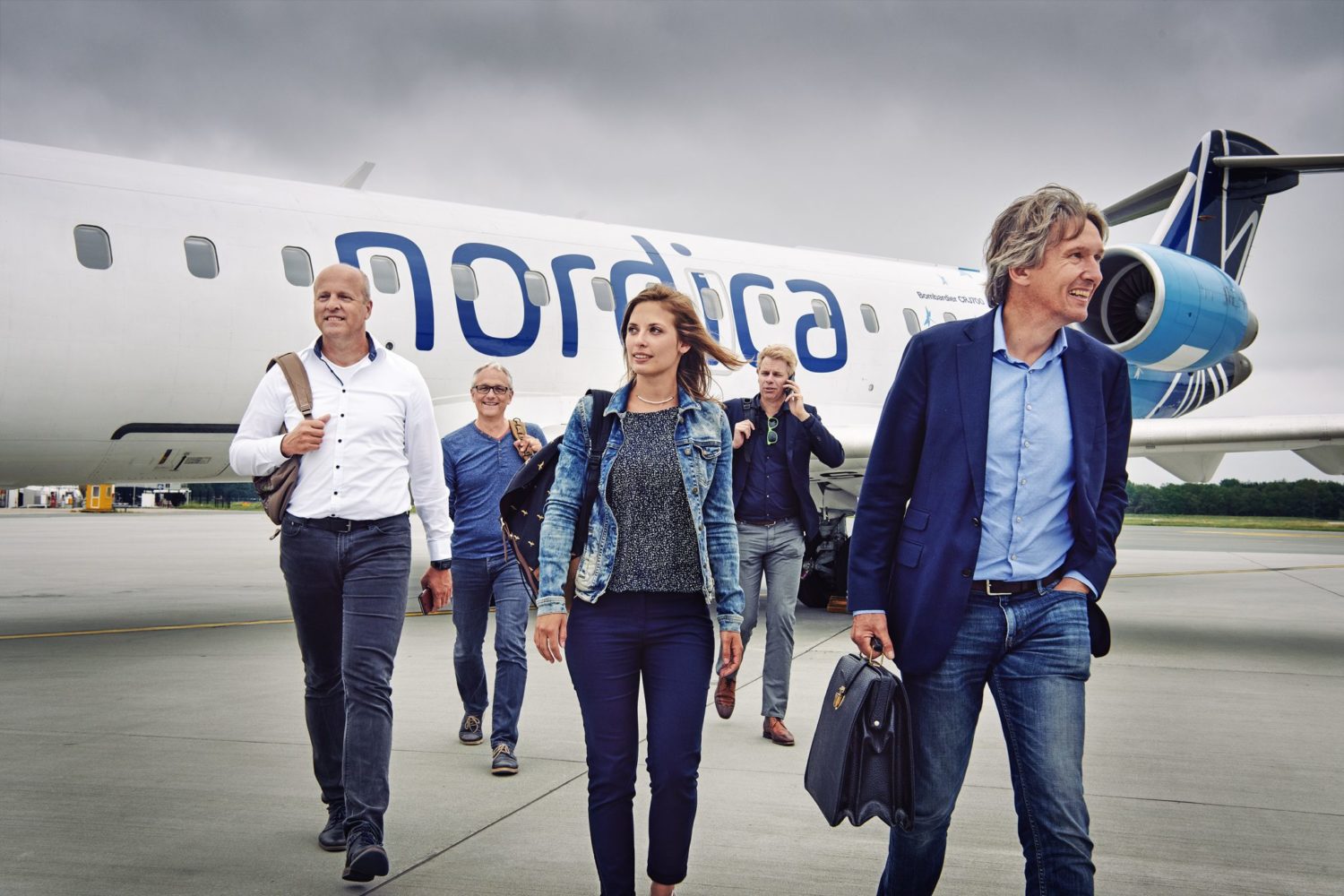Within NOM, a group of people are constantly active in attracting foreign companies to the northern Netherlands. They do this under the banner of Foreign Direct Investment (FDI). An intensive interplay between sales, marketing and networking, as well as close cooperation at the national level with the Netherlands Foreign Investment Agency (NFIA). Sander Oosterhof, who leads the FDI team, gives a look behind the scenes.
Tiered seduction with Invest in Holland
'It all starts with drawing attention to the Netherlands as a potential country of establishment. In many cases that is a challenge, because internationals do not have a good idea of what we have to offer. Focusing directly on the Northern Netherlands or a specific province is then really a bridge too far,' says Sander. This task lies primarily with the outside offices of the NFIA, part of the Ministry of Economic Affairs and Climate. There are now 26 of these around the world. As soon as a company has a desire to locate in Europe, they try to get 'Holland' on the longlist. Sander: 'This is why we initially present ourselves jointly under the Invest in Holland label, which includes several Regional Development Agencies and other partners. Our joint task is to feed the intermediaries with relevant propositions at the national level so that they can pass them on to their contacts. The goal is to get on the shortlist; then we can engage in further discussions.'
Valuable propositions enough for northern Netherlands
After the initial interviews, the NFIA and the national acquisition teams jointly consider which region has the best proposition for the company in question. Sometimes these are multiple regions, but even then the teams pull together. 'Ultimately, it's about bringing that company to the Netherlands. There are in-depth conversations about exactly what they want to do, what they need for that, what long-term plans there are and what location is best suited for that,' says Sander. 'As the Northern Netherlands, we have very valuable propositions, for example when it comes to agrifood, but also in the fields of chemistry, ict and life sciences. That's exactly why we participate in those acquisition teams. We can't sell what we don't have, but what we do have, we put across as well as we can.'
TopDutch strengthens the position of the Netherlands
Whereas the FDI efforts for Invest in Holland mainly take place behind the scenes, TopDutch is the, somewhat cheeky, face to the outside world. Fed by the knowledge and experience of the acquisition teams, among others, TopDutch designs campaigns that translate the propositions into appealing expressions. Primarily aimed at the intermediaries, but certainly also visible to a wider audience. Sander: "The chance that a random entrepreneur from the U.S. comes into contact with the TopDutch campaign and spontaneously decides to move to the Netherlands is obviously not very big. But the ongoing campaign certainly attracts attention and therefore contributes substantially to our image. Our contacts at the outside players have to sell us in the first place, which is why we have to be incredibly strong top of mind there. The fact that TopDutch generates so much attention certainly does that process good.'
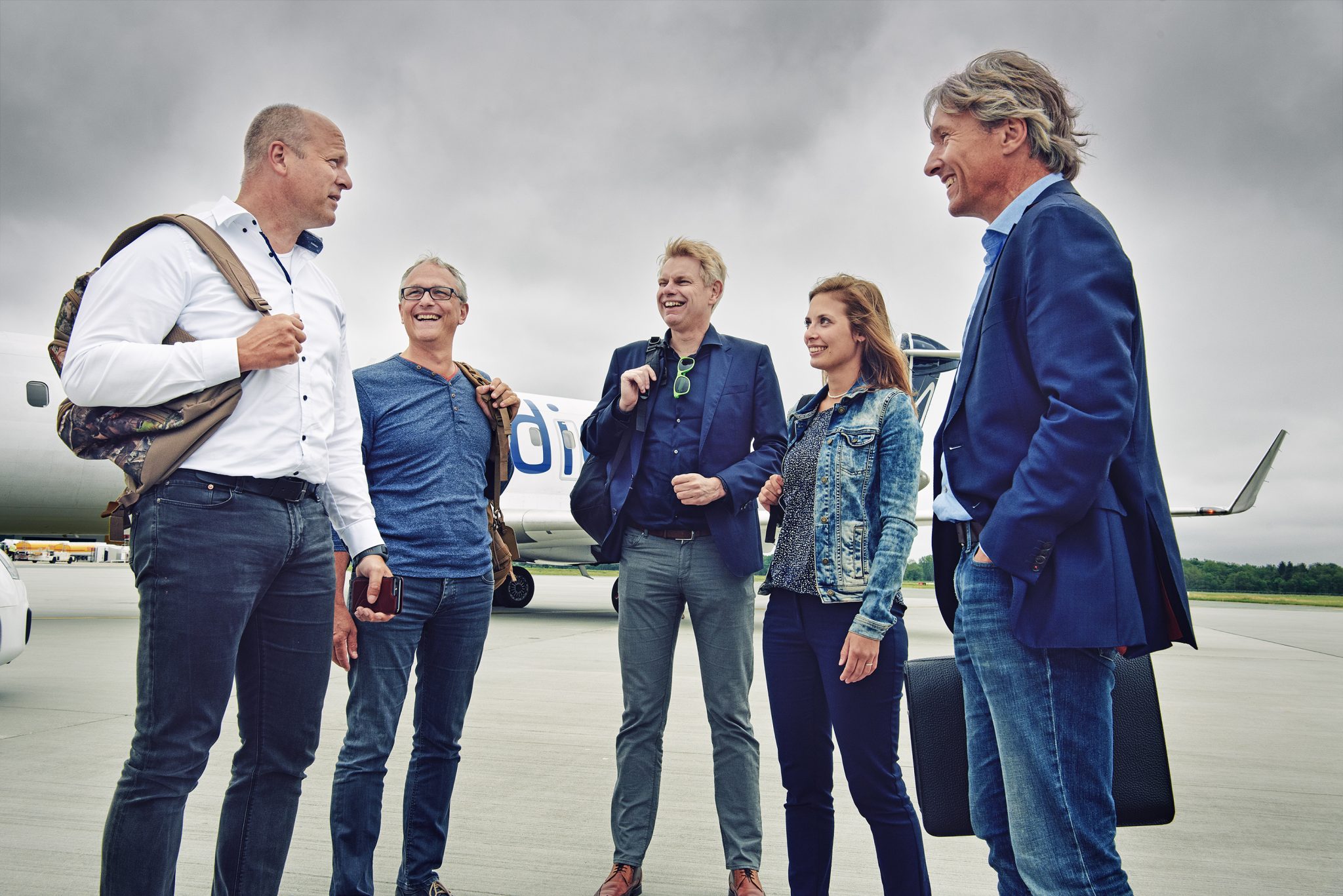
Talking, convincing and watching along
The process from initial contact to eventually establishing a Northern Netherlands presence has several stages. And sometimes it is easier than other times. Sander: "I have experienced that it took two weeks, but it took several years to establish Google in the Eemshaven, for example. It's a lot of talking, convincing, really looking closely at the exact wishes and finding solutions for any stumbling blocks.'
Not just having, but keeping
Once a company is operational, the teams' work does not stop. They remain interlocutors and serve the companies even then when it comes to expansion needs, for example. 'We naturally want the companies to stay in the Northern Netherlands as well, so they deserve our ongoing attention. International companies are good for our region. That resonates with the economy, employment, innovation and other facets. The knife cuts many relevant sides. Fortunately, we have much and increasingly more to offer. The Northern Netherlands is a wonderful place to do business," concludes Sander.
National Acquisition Teams (NAT) are clustered around different sectors. NOM FDI participates in four different NATs: Chemistry, Agrifood, Lifesciences and ICT. There is no NAT for water technology, hence this sector, which is important to us, is not discussed here. The teams work with the NFIA to formulate valuable propositions and bring them to the attention of relevant leads. What are these propositions and how do they resonate?
 Chemistry: Errit Bekkering
Chemistry: Errit Bekkering
'In our chemistry proposition, the clusters in Emmen and Delfzijl play an important role. Chemical companies almost always need other companies. They want to be located where there is talent, where they have good access to raw materials and where there are suppliers. Recently, we are stepping out together under the name Chemport Europe. With this we emphasize talent and knowledge. We have more than 55,000 students in Groningen alone, a Nobel Prize in chemistry, many research groups and, of course, already regionally established companies in the chemical sector. Our focus in terms of target group is particularly on companies that are working on greening and scaling up, because we can provide that strongly. Many parties are already working on clean energy here and we have the space. The fact that we can also offer a port in addition, of course, helps enormously.'
Regionally, the Chemport Europe team focuses not only on the big fish in the chemistry pond: 'We are also committed to attracting start-ups. That helps further innovation and thus the proposition to the big chemical companies. Chemistry is an important activity in the Northern Netherlands. The sector involves thousands of jobs and is therefore extremely relevant to our economic position. But bringing such companies here does not happen by itself. We have to keep telling them why it's good to be here. Because that's what it is.
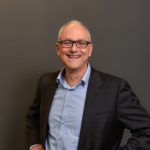 Agrifood: Joep de Vries
Agrifood: Joep de Vries
Our main proposition is that of our dairy sector, we are very good at that. Here there is already a high concentration of companies covering the entire product chain; from milk on the farm to the dairy product for the consumer. Moreover, in Leeuwarden there is a dependence of the University of Wageningen; thus we also offer knowledge and talent. That attracts internationals and they in turn also bring knowledge and other things that benefit the sector.'
The acquisition team's big challenge lies in the traditional nature of the sector: 'Agrifood is of course ancient, we have always had to eat. And that applies worldwide. Most companies are not immediately keen on expanding to another country. The establishment of Holland Dairy Valley should strengthen our proposition even further. Within this, we connect education, government, and business. This will result in talent development for the dairy sector, among other things. We are also strongly committed to innovation. We will soon be exhibiting at an international trade fair under the Holland Dairy Valley label and it will certainly help us to position the dairy sector even better.
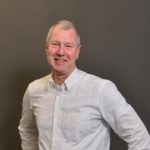 Life Sciences and Health: Gerard Lenstra
Life Sciences and Health: Gerard Lenstra
'The focus of our acquisition team is on profiling the Netherlands as a country with a strong focus on medical research and health. We are, of course, a relatively small country, but we have 12 universities that focus on medical-related education and eight University Medical Centers. Everything can be reached within a few hours. So the knowledge intensity is very high. That's interesting for internationals.'
For the Northern Netherlands, the focus is more specific: "Once we're in talks, we can really custom profile. We have very specific knowledge and experience here. Think of Personalized Health & Diagnostics, where genetic research, Big Data, research cohorts like Life Lines and development of Biomarkers come together. In the field of drug research and administration, for example, the region excels in inhaler technology, but we also have a leading role in the field of antibiotic resistance and new antibiotics. In addition, the UMCG is the only hospital in the Netherlands authorized to perform all types of transplants. Those knowledge niches attract specific companies in the field of research and product development. So it's really about finding the connection and offering customization.'
A match between company and region therefore does not just happen: "Of course everyone is welcome, but we think it is important that a company actually becomes and remains successful. Such a company must be in exactly the right place, and sometimes that is here, but sometimes also in another region. There where they really fit exactly we often see the best things happen and they stay. Even if they are taken over by larger concerns. It is often pioneering in this sector and that is just perfectly possible in the Northern Netherlands.'
Besides the dairy industry, the Northern Netherlands has other propositions around Plant Based and Healthy Ageing. After all: vegetable proteins are becoming increasingly important for our health! 'Yet it remains important to first present ourselves as the Netherlands and only then to draw attention to the various regions. That's why cooperation within NAT is so important.'
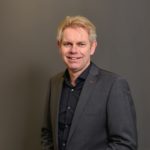 IT: Wubbo Everts
IT: Wubbo Everts
'The IT sector is a bit of an oddity anyway because IT is ubiquitous. It's not an official top sector in that sense. There are interlinkages everywhere. Within our national acquisition team, we have set up various working groups that conduct ongoing research and acquire knowledge about specific components. For example, cybersecurity, big data, gaming, virtual reality, blockchain technology and data centers. From those groups we feed the outside ears with our propositions for the Netherlands.'
The IT sector is firmly developing worldwide, so actively approaching companies is a must. 'We have a list of leads within each working group and work with the outside offices of the NFIA to pursue those leads. We do that together, only then do we look at which region is the best fit. From the Northern Netherlands perspective, for example, we have a lot of knowledge about data centers. So then we like to be at the forefront.'
Getting a foothold within the international IT sector is also a matter of networking a lot and connecting those networks. 'We are in constant dialogue with the business community - we already have many fine IT companies in the region, of course - education and government. We are constantly looking at how we can link different parties together to further strengthen our proposition. In fact, we have everything we need in-house, as proven by the fact that leading companies such as IBM and Google have established themselves here. And the fact that 'our' companies operate internationally also reflects very positively on the region. There is no shortage of talent, but it is important to keep that talent here. That is why attracting international players is extra relevant.'
